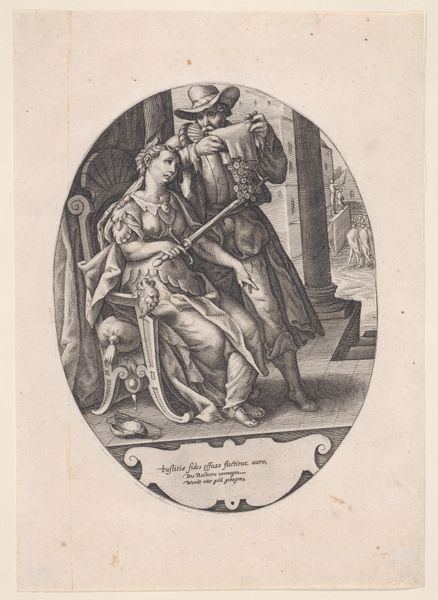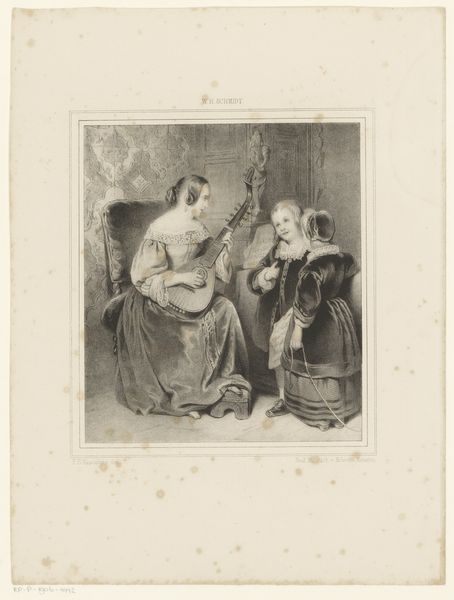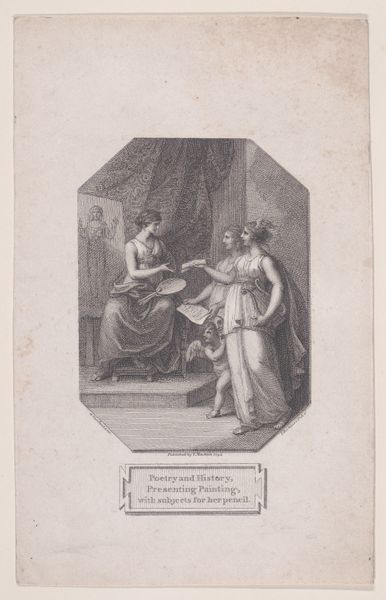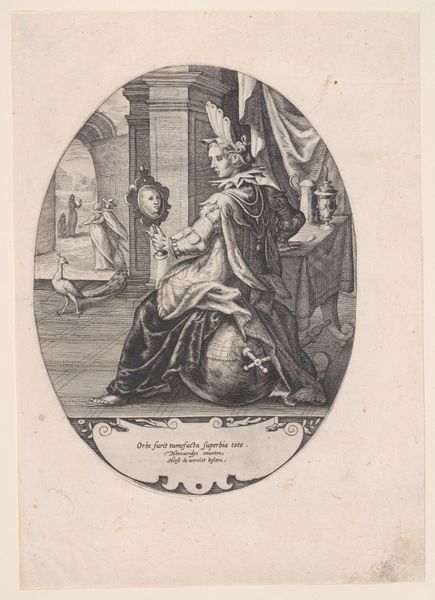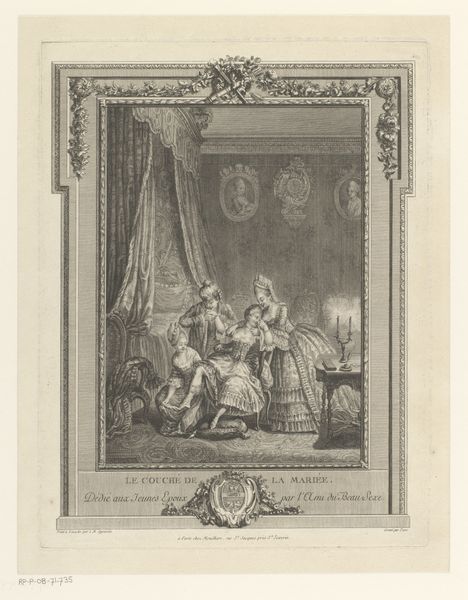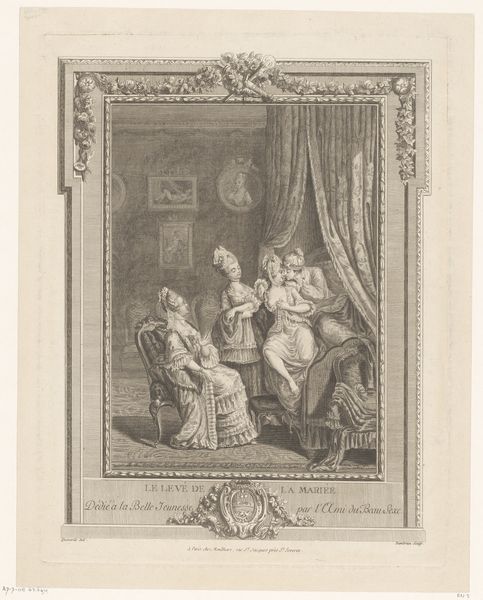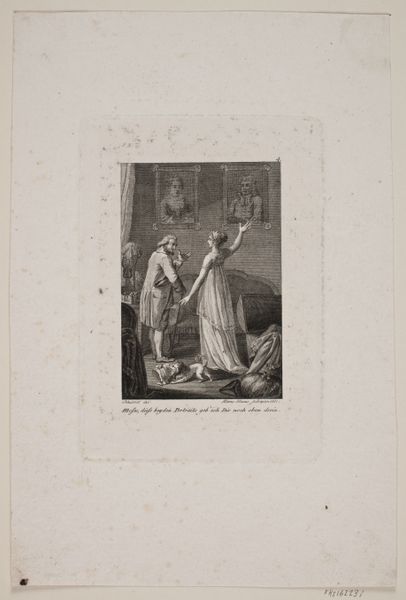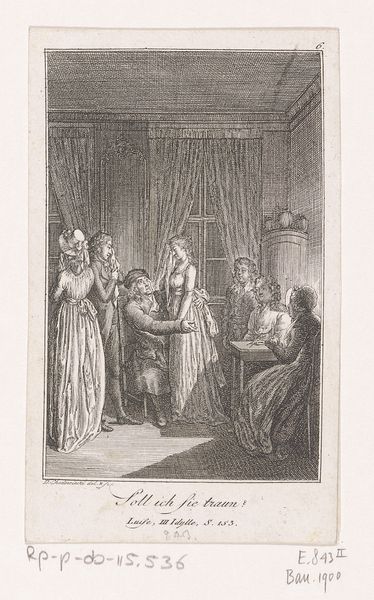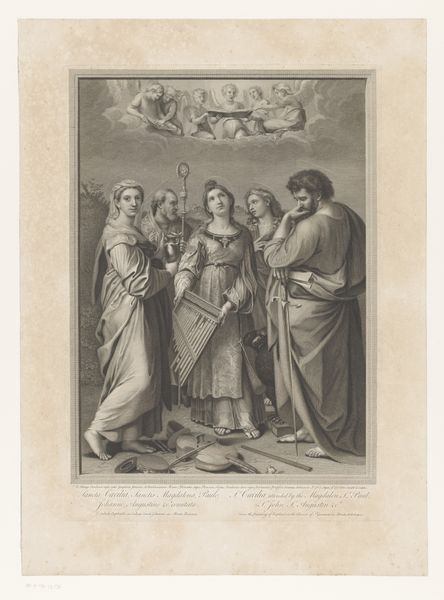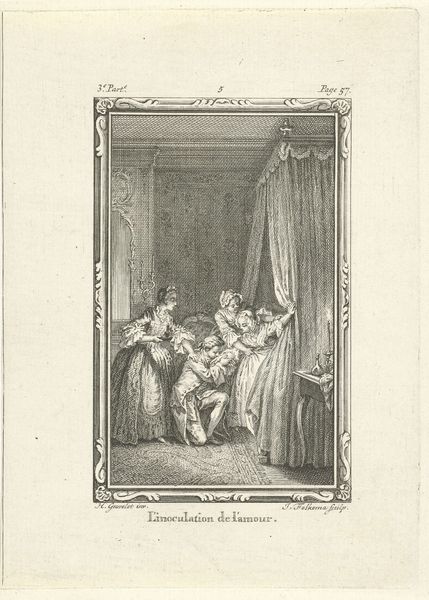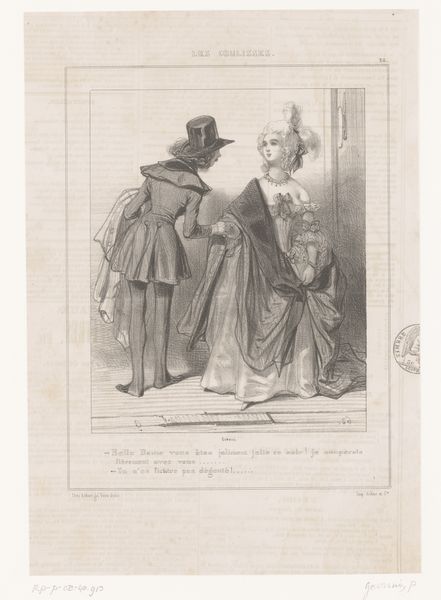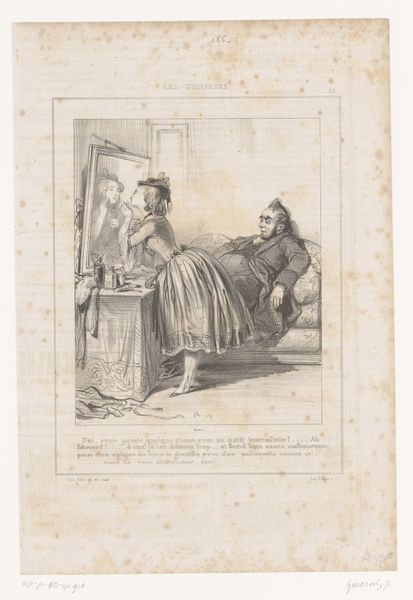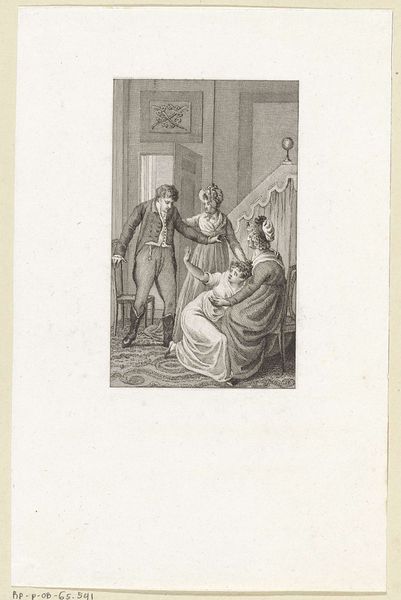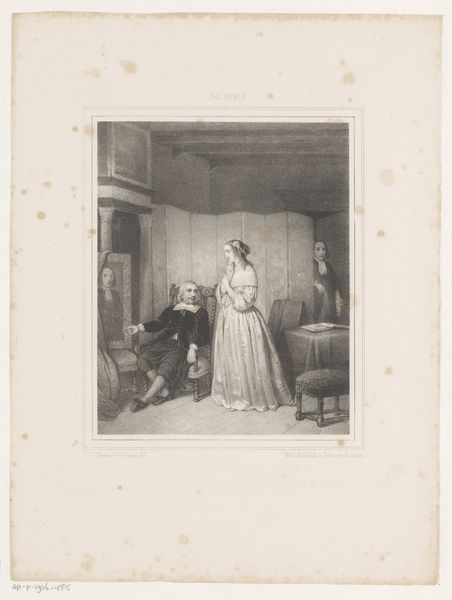
drawing, coloured-pencil, print, gouache, paper, ink, chalk, graphite
#
portrait
#
drawing
#
coloured-pencil
# print
#
gouache
#
pencil sketch
#
paper
#
ink
#
coloured pencil
#
chalk
#
graphite
#
genre-painting
#
history-painting
#
academic-art
Dimensions: 241 × 177 mm
Copyright: Public Domain
This drawing, "The Chevalier Bayard Refusing 2500 Ducats," is rendered in graphite and ink on paper, likely dating back to the 18th or 19th century. The artist's hand is evident in the delicate hatching and cross-hatching that define the figures and their surroundings, using these simple materials to convey the texture of armor, fabric, and stone. Notice the grid faintly visible beneath the composition, a working method revealing its function as a preparatory sketch. This hints at a printmaking process, where the design would be transferred to a plate for reproduction, indicative of the growth of commercial art practices during this period. Consider the labor embedded in this piece. From the production of paper and ink to the artist's skilled hand, we see a pre-industrial mode of creation. Yet, the very act of creating a design for reproduction suggests an awareness of the emerging market for images. By attending to both the materials and the drawing's intended purpose, we can appreciate how this artwork bridges the worlds of craft and commerce.
Comments
No comments
Be the first to comment and join the conversation on the ultimate creative platform.
